by Lerato Motsisi
In a complex world that constantly faces major societal changes, the impact of Human Sciences Research can, in great measure, contribute to building inclusive and sustainable societies and economies.
Emphasising the impact of such research in opening the Faculty’s annual Research Day themed ‘Human Sciences Research for Sustainable Development’, Prof Mashupye H Maserumule, Executive Dean of the Faculty of Humanities said: “When we do research, we do it for impact. We do it for a source of sustainable development in producing new knowledge. New knowledge is important; it is what drives development for a country. As a university, it is our responsibility to put research at the top.”
“As indicated by global rankings of universities, quality research comes from the top universities of the world,” he continued while urging students and staff to master the art of making their research findings easily accessible to have a positive societal impact.
Prof Thelma De Jager, Assistant Dean: Postgraduate Studies, Research, Innovation and Engagement at the Faculty outlined the purpose of the day, emphasising the importance of providing a platform where everyone can confidently present their research and comfortably talk about their findings.
She added that presenters should heed and value all feedback and comments on their work, especially since the Faculty aspires to create a niche area on sustainability of areas such as poor economic growth, quality education and other relevant topics in the Humanities.
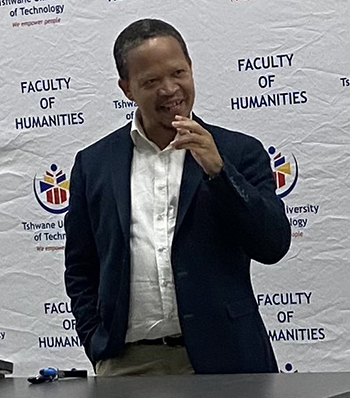
Prof MH Maserumule at the Faculty Research Day.
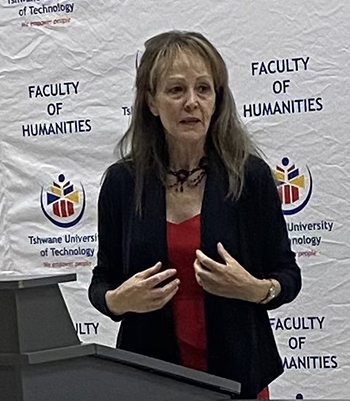
Prof T De Jager addressing the research day attendees.
Since research cannot be done in isolation, networking was another key purpose of the day, giving researchers an opportunity to connect with like-minded colleagues who could assist and support them further in their work.
Prof Ricky Mukonza, Academic Manager at the Polokwane Campus, outlined the gravitas and importance of published work, especially for staff and students publishing postgraduate research. “Gravitas refers to the importance or seriousness of a matter. The issue of publishing is a subject that we value and view seriously, especially for our Masters and Doctoral students”, said Prof Mukonza.
He echoed Prof Maserumule’s call for quality research to be put at the top, emphasising that research work must be of a high standard for it to be published and for gaining the University recognition as a high quality research institution.
Access to information and other resources is vital for researchers to deliver good work. Library and Information Services (LIS) therefore play a vital role in supporting researchers on their journey. Staff from LIS also addressed students and staff on LIS support available for postgraduate students, which includes referencing and citation, as well as publishing in DHET accredited journals, amongst others.
Following the opening session, the 51 delegates broke away into seven different parallel sessions to present their work, answer questions and engage in discussions around their work.
Among the presenters was National Research Foundation (NRF) Y2-rated researcher, Dr Tebogo Rakgogo, Head of the Department of Applied Languages, speaking about a highly relevant topic in education in the country currently, language in education. The topic of his presentation was: A linguistic evaluation of the South African Higher Education Sector; A reflection on 30 years of democracy (1994 – 2024).
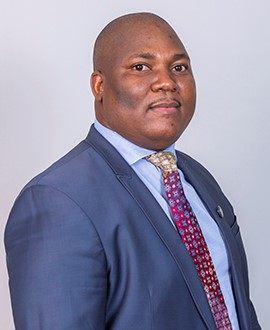
Dr Tebogo J Rakgogo
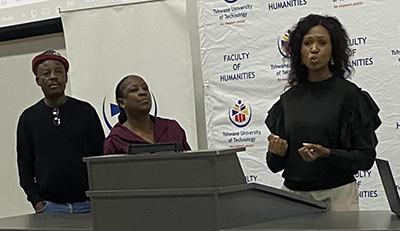
LIS staff members presenting at the research day.
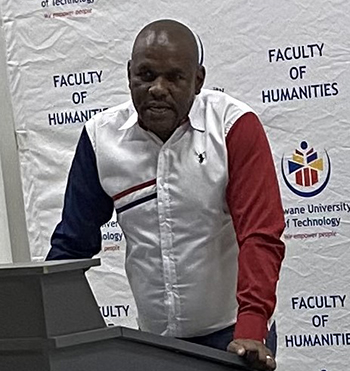
Prof RM Mukonza addressing research day attendees.
